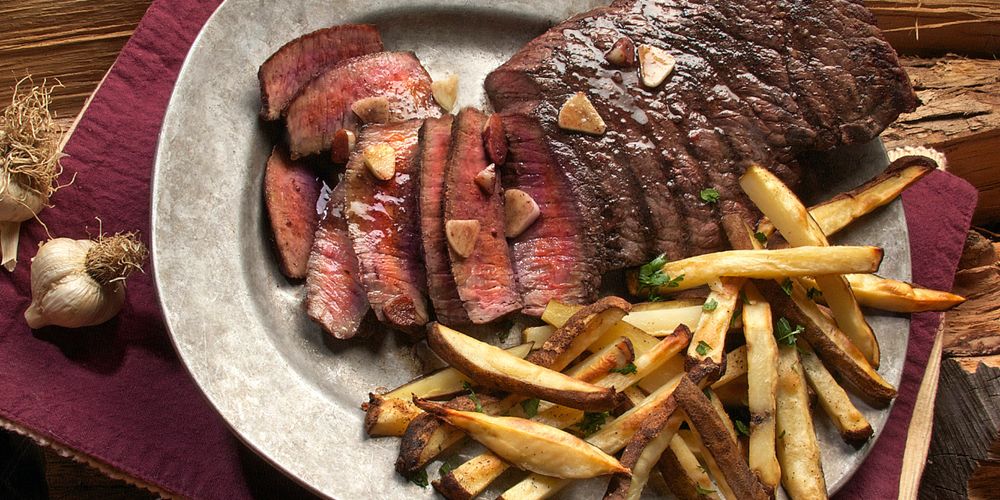Reasons Meat Reigns as the Ultimate Protein Source
-
 Sofia Cruz
Sofia Cruz
- 7 July 2023

Protein is an essential nutrient that the body needs to function properly. It is responsible for building and repairing tissues, making enzymes and hormones, and supporting the immune system. While there are many sources of protein, meat is often considered the best source due to its high-quality protein content.
Meat is a complete protein, meaning it contains all of the essential amino acids that the body cannot produce on its own. These amino acids are necessary for building and repairing muscle, bone, and other tissues in the body. In addition, meat is easily digestible and absorbed by the body, making it a convenient and efficient source of protein for people of all ages and activity levels.
While some people may argue that plant-based sources of protein are just as good as meat, it is important to note that not all proteins are created equal. Plant-based proteins often lack one or more essential amino acids, making it more difficult for the body to use them effectively. Additionally, plant-based sources of protein may be more difficult to digest, leading to bloating and other digestive issues.
Complete Amino Acid Profile
Meat is an excellent source of protein because it contains all nine essential amino acids that our bodies need to function properly. These amino acids are called “essential” because our bodies cannot produce them on their own, so we must obtain them through our diet. Meat, especially beef, is considered a complete protein source because it contains all nine essential amino acids in the right proportions.
Complete proteins are important for building and repairing tissues in our bodies. They also help to maintain a healthy immune system and produce important enzymes and hormones. In addition, complete proteins are more satiating than incomplete proteins, which means they keep us feeling full for longer periods of time.
Here is a breakdown of the essential amino acids found in meat:
| Amino Acid | Function | Food Sources |
|---|---|---|
| Lysine | Helps build muscle and maintain bone health | Beef, chicken, turkey, pork, fish |
| Leucine | Stimulates muscle protein synthesis and helps regulate blood sugar levels | Beef, chicken, turkey, pork, fish |
| Isoleucine | Helps with muscle metabolism and energy production | Beef, chicken, turkey, pork, fish |
| Valine | Assists with muscle growth and repair | Beef, chicken, turkey, pork, fish |
| Threonine | Helps with immune function and maintaining proper protein balance in the body | Beef, chicken, pork, fish |
| Methionine | Assists with metabolism and detoxification processes in the body | Beef, chicken, turkey, pork, fish |
| Phenylalanine | Helps produce important neurotransmitters in the brain | Beef, chicken, turkey, pork, fish |
| Tryptophan | Assists with producing serotonin, a neurotransmitter that helps regulate mood and sleep | Turkey, chicken, pork, fish |
| Histidine | Important for growth and development in children, as well as for maintaining healthy tissues in adults | Beef, chicken, turkey, pork, fish |
As you can see, meat is a great source of complete protein and essential amino acids. Including meat in your diet can help you meet your daily protein needs and maintain a healthy body.
High Biological Value
Protein is an essential nutrient that our bodies need to build and repair tissues, make enzymes and hormones, and support healthy immune function. Not all proteins are created equal, however. Biological value (BV) is a measure of how much of a protein source is actually used by the body for these functions. Meat is considered to be the highest biological value protein source, with an average BV of 80-90%, compared to plant-based sources which generally have a BV of 50-70%.
One reason for this difference is that animal proteins contain all of the essential amino acids that our bodies cannot make on their own. These amino acids are necessary for protein synthesis and are more easily absorbed by the body when they are consumed together in one food source. Plant-based sources, on the other hand, may not contain all of the essential amino acids or may have lower levels of certain amino acids, making them less efficient sources of protein.
Meat is also a rich source of other important nutrients, such as iron, zinc, and vitamin B12, which are not as readily available in plant-based sources. These nutrients are essential for healthy red blood cell production, immune function, and nerve function.
While it’s important to note that plant-based sources of protein can still be a healthy part of a balanced diet, meat is a highly efficient source of protein that provides a wide range of essential nutrients. Incorporating meat into your diet can help ensure that you are meeting your body’s protein and nutrient needs.
Easily Digestible
Meat is an easily digestible source of protein. It is broken down quickly and efficiently by the body, making it an excellent choice for athletes and those looking to build muscle mass.
One reason for this is that meat contains all of the essential amino acids that the body needs to build and repair muscle tissue. These amino acids are easily absorbed and utilized by the body, making meat a highly efficient source of protein.
In addition, meat is also low in fiber, which means that it moves quickly through the digestive system. This can be particularly beneficial for people with digestive issues or those who have trouble digesting high-fiber foods.
Overall, meat is an excellent source of easily digestible protein that can help support muscle growth and repair.
Iron and Vitamin B12
Meat is an excellent source of iron, a mineral that plays a vital role in the formation of red blood cells. Iron is essential for carrying oxygen from the lungs to the rest of the body, and a deficiency can lead to anemia, fatigue, and decreased immune function. Meat, particularly red meat, is one of the best sources of heme iron, which is more easily absorbed by the body than non-heme iron found in plant-based foods.
Vitamin B12 is another nutrient found almost exclusively in animal products, including meat, fish, eggs, and dairy. Vitamin B12 is essential for the formation of red blood cells, DNA synthesis, and proper nerve function. A deficiency in vitamin B12 can lead to anemia, fatigue, and neurological problems.
While some plant-based foods are fortified with vitamin B12, it is generally recommended that individuals who follow a vegetarian or vegan diet take a supplement or consume fortified foods to ensure adequate intake. However, it’s important to note that the absorption of vitamin B12 from supplements and fortified foods may not be as efficient as from animal products.
Overall, meat is an excellent source of both iron and vitamin B12, making it a crucial component of a healthy diet. In addition, freezing meat can help preserve these important nutrients, making it a convenient and practical option for meal planning and preparation.
Satiety and Weight Management
Protein is known to be more satiating than carbohydrates and fats, and therefore, it’s believed that a diet high in protein can lead to decreased food intake and weight loss. Several studies have shown that high-protein meals and foods are more satiating than high-carbohydrate or high-fat meals when assessed by subjective ratings.
Additionally, protein also plays a crucial role in weight management. A diet high in protein can help to modulate food intake, promoting body weight loss and body weight maintenance thereafter. Potential beneficial outcomes associated with protein ingestion include increased satiety, decreased food intake, and increased energy expenditure.
Meat is an excellent source of high-quality protein and can be a great addition to a weight loss or weight management diet. In fact, research suggests that diets higher in protein, such as those that include meat, can lead to greater weight loss compared to diets that are lower in protein.
Furthermore, freezing meat can be a great way to preserve its quality and make it last longer. This can be especially helpful for individuals who are trying to manage their food intake and weight. By freezing meat, you can ensure that you always have a high-quality source of protein on hand, which can help to increase feelings of satiety and promote weight loss or weight management.
Sustainability and Ethics
There has been a growing concern about the environmental impact of meat consumption. However, it’s believed that meat production can be sustainable and ethical when done correctly.
Firstly, it’s important to note that meat provides a high-quality source of protein that is essential for maintaining good health. Meat is also rich in micronutrients such as iron, zinc, and vitamin B12.
When it comes to sustainability, it’s important to consider the carbon footprint of different types of meat. Beef and lamb have a higher carbon footprint compared to chicken and pork. However, it’s important to note that grass-fed beef can have a lower carbon footprint compared to grain-fed beef.
In terms of ethics, it’s important to ensure that animals are raised and slaughtered in a humane way. This can be achieved through proper animal welfare practices and regulations.
Another benefit of meat consumption is that it can help reduce food waste. Meat can be frozen for long periods without losing its nutritional value, making it a great option for meal planning and reducing food waste.
Overall, when meat is produced sustainably and ethically, it can provide a high-quality source of protein that is essential for maintaining good health while also reducing food waste.


